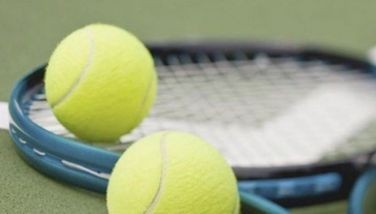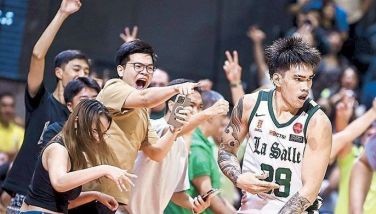Maybe next time

No referee has ever been named to the PBA Hall of Fame and the late Igmidio (Iming) Cahanding nearly made it this year after his nomination by the Selection Committee. In the US, the Naismith Memorial Basketball Hall of Fame has enshrined 14 referees since 1959, a small percentage considering 314 inductees overall. Among the 14, only three were NBA referees, John Nucatola, Earl Strom and Mendy Rudolph.
The PBA Honors Committee recently announced the elevation of four individuals to the Hall of Fame – two-time MVP Benjie Paras, Lim Eng Beng, Ronnie Magsanoc and coach Ed Ocampo. Aside from the four honorees, the Selection Committee had previously nominated Cahanding, league official Elmer Yanga, the late sportswriter Fred Luarca, the late player Arnie Tuadles and former import Sean Chambers.
Cahanding joined the PBA’s pioneer corps of referees in 1975 and was one of the league’s technical officials until his death in 1989 at the age of 59. In every game he worked, Cahanding stood out, nimble on his feet, decisive in making a call – popular or not – and irrepressible in breaking up a potentially explosive confrontation among players by imposing his 5-10, 275-pound frame to separate hotheads on the floor.
Cahanding wasn’t a full-time referee. He entered the police force in 1951 as a patrolman and rose to the rank of Lt. Colonel in the Integrated National Police. In a sense, Cahanding was a policeman on and off the court. He once described referees as the most abused people in basketball but said it with a smile.
The late great sportscaster Willie Hernandez fondly called Cahanding “the most colorful referee the Philippines ever had.†He was surprisingly agile despite his bulk and once boasted he could work two full games a night. The knock on Cahanding was his grandstanding – he was an attention-grabber, probably feeling referees deserved some billing in a game, that they weren’t just props. Still, he was loved by fans because the cop brought a rare flair in blowing his whistle while bouncing up and down the floor.
* * * *
“His energetic, meticulous officiating, spiced with demonstrative mimicry of every cause of every call he makes, accounts for his being a standout even in a field of cage superstars,†wrote Emmie Velarde. “Big and burly, he would run across the court after a player who commits a foul and show him, in action not words, what in the world he did and why he should raise his arm to acknowledge the foul. He would hop, skip, jump in the air, wave his hand, raise a fist to get his message across to the players and ultimately, the audience.†On his theatrics, Cahanding himself explained, “Actions, especially where referees are concerned, are a necessity ... a good ref should overact if only to prove his point, that’s the way you can tell everyone why a foul is called, why the ball goes to the other side.â€
Cahanding made his referee’s debut in 1965 and enlisted with the Basketball Officials Association of the Philippines (BOAP) in 1971. He was BOAP in 1972-75 and licensed by FIBA to work Asian Basketball Confederation (ABC)-sanctioned tournaments. No doubt, he was one of the country’s top arbiters in the MICAA and PBA. Cahanding also did his share in working international games.
Cahanding said a referee should treat every second of the game the same way. “To be a good referee, there should be no such thing as a crucial part of the game,†he told Velarde. “Every second should be treated like it is the most crucial part of the game. No matter if it is a championship game or not, a referee must approach a game equally.â€
* * * *
Cahanding said it’s a challenge to become a referee who is recognized for his fairness and competence. “The model referee calls the game only as he sees it,†he once said. “And he stands by all decisions, popular and unpopular, right or wrong. If he realizes he made a wrong judgment call, he has to stick by it and charge it to experience. You can’t make ‘bawi.’ A referee should remember he is an educator, someone who is supposed to remind players when they forget about sportsmanship and fair play. He is also a judge and a member of the basketball community which players belong to.
“Every call is in favor of one team and at the same time, against the other. Not all justifiable calls are popular decisions, in the same manner that not all basketball idols are the best players. A referee shouldn’t listen to the boos. He should get used to that. The best thing is to prepare for the worst any time. You’ve got to be tough, too. Just think of the big guys you’re supposed to teach manners to on the court. To me, officiating is an art. It is something you have to learn and master.â€
Cahanding was married to the late Adoracion Reyes. They were blessed with five children – Marissa, 60, a teacher in Singapore, Wilma, 58, a retired midwife, Igmidio (Boy), Jr., 57, the first FIBA technical commissioner license-holder in the country and a five-time NAASCU commissioner, Rolando, 55, an agriculturalist and Marc, a call center agent. He earned a degree in political science at Manuel L. Quezon University and took up post-graduate studies in law at Ortanez.
In two years, Cahanding may be reconsidered for the PBA Hall of Fame. Maybe, by then, it will be time to enshrine a referee to serve as a role model for the league’s whistle-blowers.
- Latest
- Trending



























